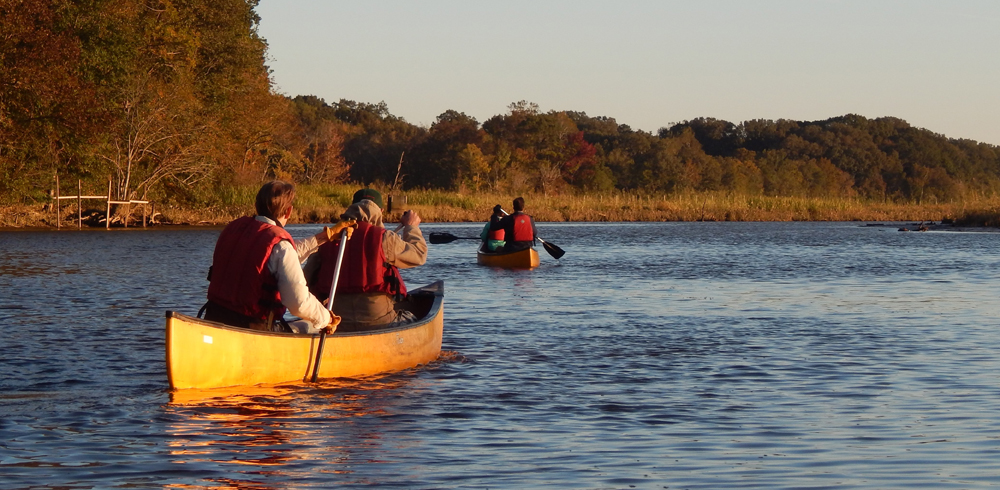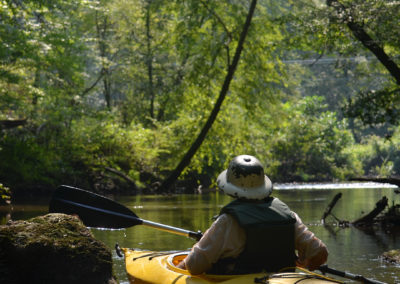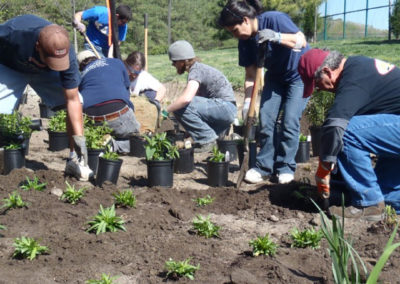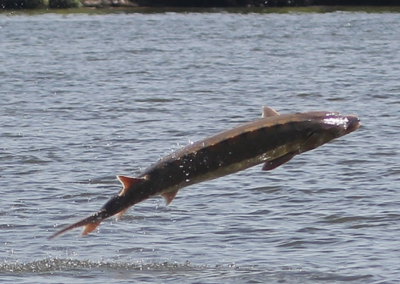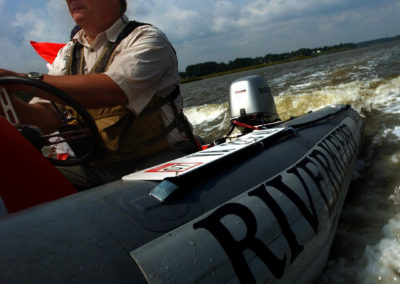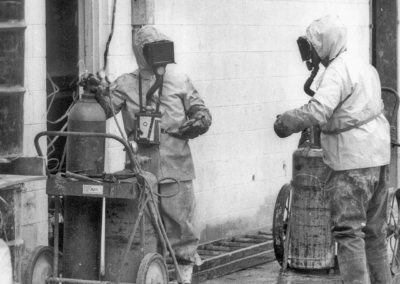Why (we think) the James River deserved to win?
The Thiess International Riverprize is considered the most coveted award of river and watershed restoration and is based on accomplishments in integrated river basin management! Being one of the finalists is a tremendous honor, and to be announced as the 2019 winner – is a tremendous tribute to the progress that we have made together with the Commonwealth of Virginia and many public and private partners! 2019 also marks the first time that a river from the Mid Atlantic has been selected as a finalist!
The James River, designated as America’s Founding River by the U.S. Congress in 2007 for its unparalleled history, has been the defining feature of Virginia for centuries, and it is growing steadily more important as water resources become more critical in the 21st century.
- The James is vital to the communities along its course, for commerce, tourism, and economic development.
- Provides sought-after outdoor recreation, scenic beauty and quality of life that attract new residents and businesses.
- The James contributes an estimated $19 billion of economic value and a fully healthy, restored river would increase that value to $22 billion annually.
- Virginia’s largest source of drinking water serving over 2.7 million people.
- The James produces millions in revenue from the commercial fish and shellfish industry.
- More than 4 million people visit its riverside parks each year.
- In 2012 the James enabled Richmond to be named Outside magazine’s “Best River Town in America”.
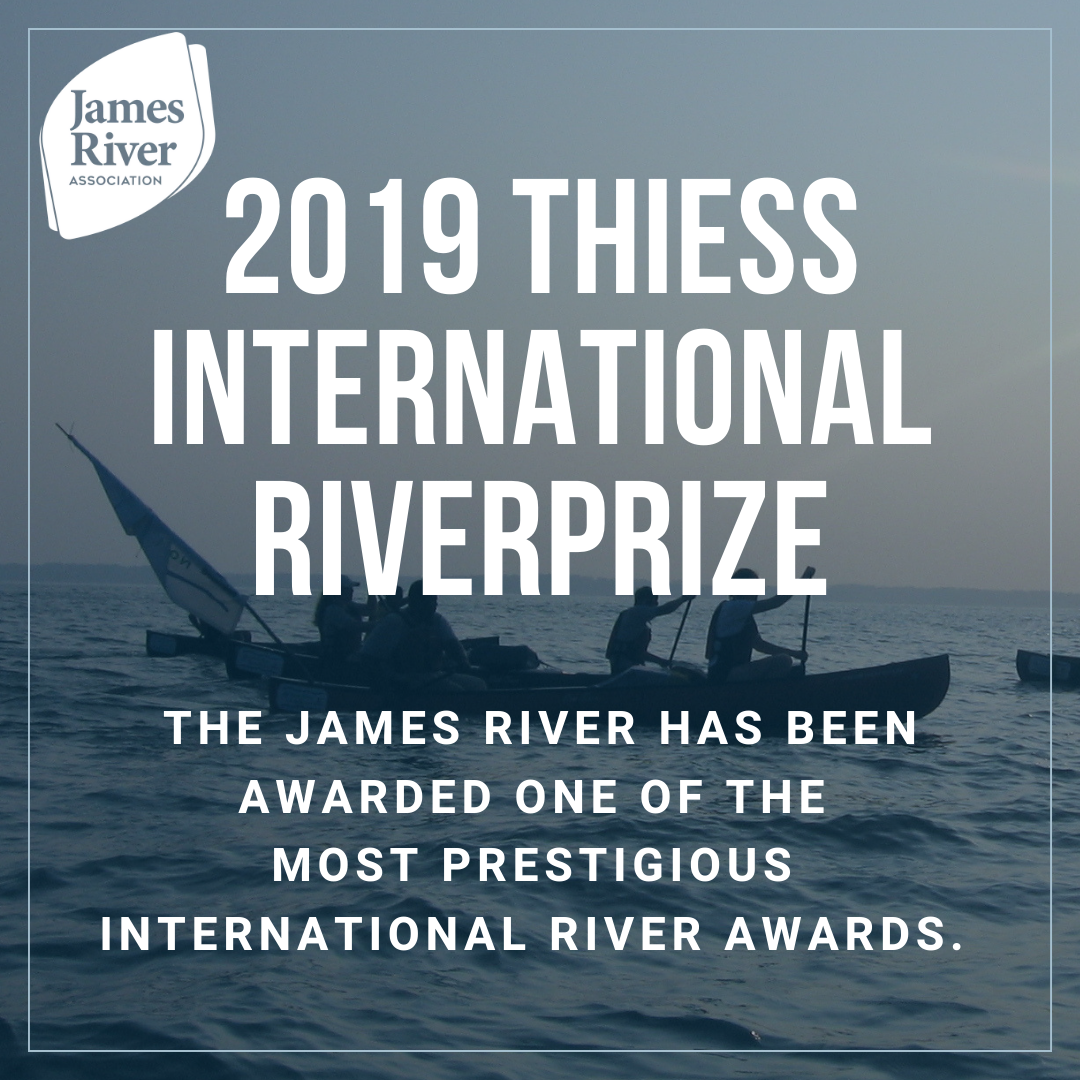
We want to know why you feel the James River deserved to win the 2019 Thiess International Riverprize! Share, tweet, post what the James River means to you and why YOU think it deserves this honor!
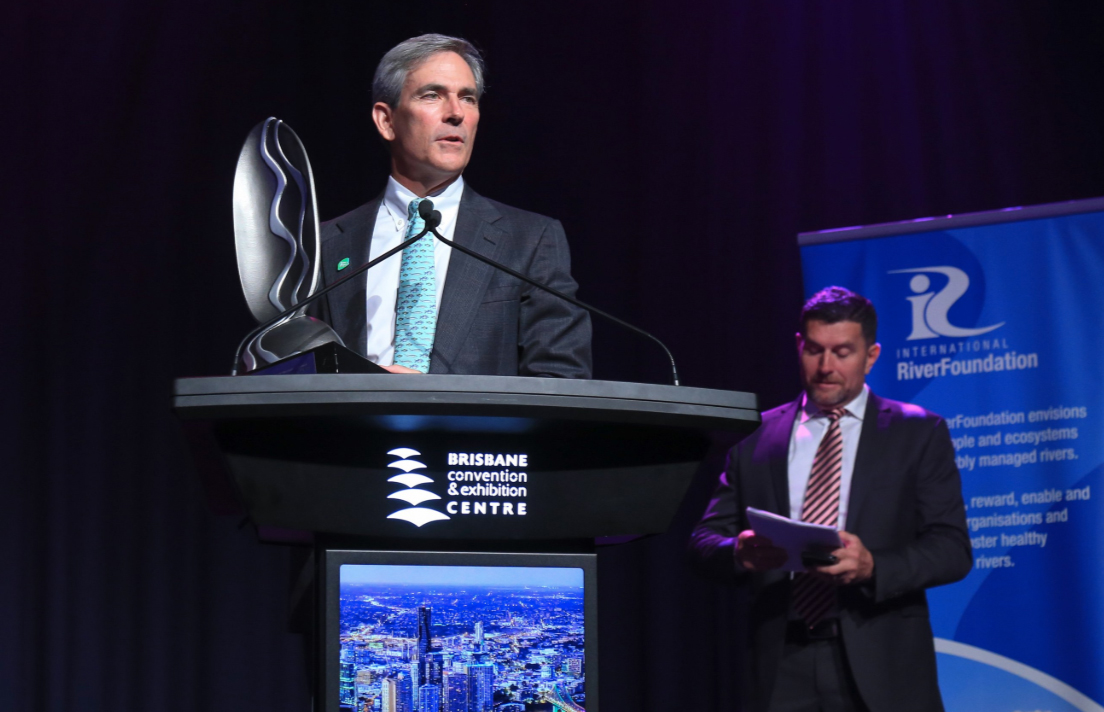
What can you do to get involved? Join our mailing list • Volunteer • Become a Member • Be A James Changer!
When JRA was founded in 1976, the James River was considered one of the most polluted rivers in the country with large sections declared dead or unfit for human use. Through four decades of consistent and continued effort, the James River has transformed from one of the most polluted in the country to one of the most improved.
- Opinion polls show that over 80% of Virginians consider local waterways to be very important – 20% higher than the national average.
- A recent study found that 26% of all Virginians participated in some form of environmental education in 2015, including 350,000 students.
- Access to the James River has expanded to over 200 public access points.
- Wastewater, agriculture and stormwater projects have achieved collectively 52% of nitrogen and 77% of phosphorus reductions needed for a fully healthy James River and are on track to meet regulatory goals by 2025.
- Virginia has established comprehensive plans to increase resiliency along the James River, addressing climate change and other future threats.
What accomplishments have been made on the James?
2018 – Top Regional Attraction
Richmond Region Tourism Annual Report confirms the James River Park as a top regional attraction.
2012 – Historic Trail Established
James River Segment Plan of the Capt. John Smith Chesapeake National Historic Trail established.
2012 – Richmond Riverfront Plan
Adoption of Richmond Riverfront Plan by the City of Richmond, Virginia.

